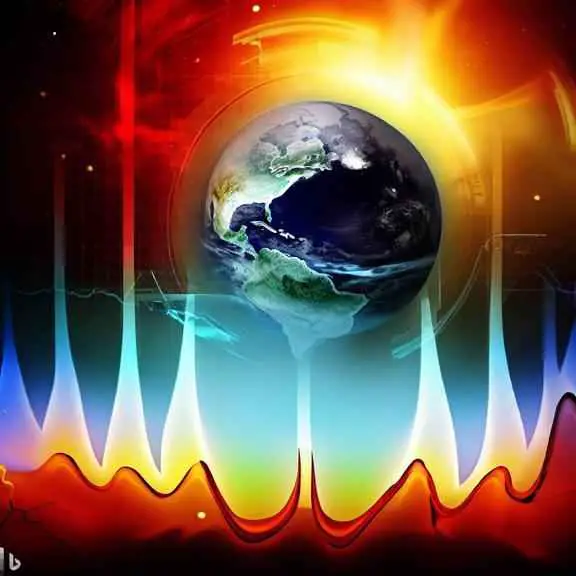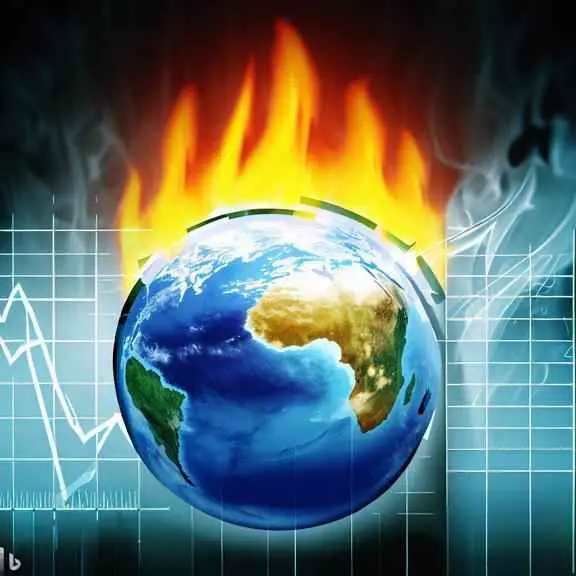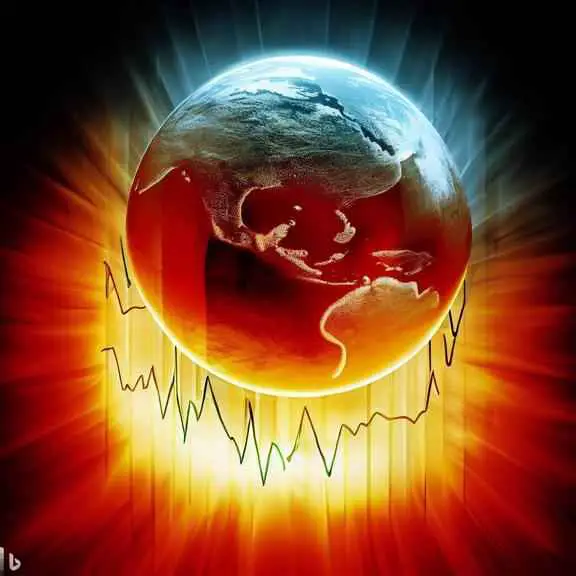Paragraph on
Global Warming
for all Class, Words
by Environment on
Global warming has become a significant issue affecting the planet. Due to the increase in the concentration of greenhouse gases, the Earth…, please continue reading.

Table of Content
Ad
The Paragraph on Global Warming
Ad

Questions about Global Warming
Ad
Global warming has become a significant issue affecting the planet. Due to the increase in the concentration of greenhouse gases, the Earth’s average surface temperature has risen over the past century. This has resulted in a variety of impacts, including changes in climate patterns, more frequent extreme weather events, and rising sea levels.
One of the main causes of global warming is the burning of fossil fuels such as coal, oil, and gas, which release carbon dioxide, methane, and other greenhouse gases into the atmosphere. Deforestation, agriculture, and land use changes are also significant contributors to increasing greenhouse gas concentrations.
To counteract global warming, individuals and governments can take various steps. Energy conservation, such as reducing consumption and using renewable energy sources, can significantly reduce greenhouse gas emissions. Climate policies, such as carbon taxes or emissions trading schemes, can provide incentives for businesses to reduce their emissions. Additionally, reforestation projects, changes in agricultural practices, and improvements in mass transportation systems can also help reduce carbon emissions and mitigate climate change impacts.
In conclusion, global warming is a pressing issue facing our planet. It is caused by human activities, and its effects are far-reaching and potentially catastrophic. However, there are various strategies that individuals and governments can take to address the issue and reduce greenhouse gas emissions.
- What is global warming?
- Global warming is a significant issue affecting the planet, caused by the increase in greenhouse gas concentrations resulting in the Earth’s average surface temperature rise.
- What are the primary causes of global warming?
- The primary causes of global warming are burning fossil fuels, deforestation, agriculture, and land use changes which release greenhouse gases into the atmosphere.
- What are the effects of global warming?
- The effects of global warming include changes in climate patterns, more frequent extreme weather events, and rising sea levels.
- How can individuals counteract global warming?
- Individuals can counteract global warming by reducing consumption, using renewable energy sources, implementing energy conservation methods, and supporting climate policies.
- What are some examples of climate policies?
- Examples of climate policies include carbon taxes, emissions trading schemes, and incentives for businesses to reduce their emissions.
- What is reforestation?
- Reforestation is the process of replanting trees and restoring forests to reduce carbon emissions.
- How can changes in agriculture practices help reduce carbon emissions?
- Changes such as reducing tillage, planting cover crops, and practicing crop rotation can help reduce carbon emissions in agriculture.
- What is mass transportation, and how can it mitigate global warming?
- Mass transportation refers to public transportation systems such as buses, trains or subways. These systems can help reduce carbon emissions by promoting the use of public transport over personal vehicles.
- What is the most significant contributor to greenhouse gas concentrations?
- Burning of fossil fuels such as coal, oil, and gas is the most significant contributor to greenhouse gas concentrations.
- How serious is global warming?
- Global warming is a serious threat facing our planet, its effects are far-reaching, and if ignored can lead to catastrophic impacts on our environment, economy, and society.

Vocabulary related to Global Warming
Ad
Vocabulary words:
- Concentration: the amount of a particular substance in a given volume or space.
Usage: CO2 concentrations in the atmosphere have been steadily increasing since the Industrial Revolution.
Synonyms: density, abundance, intensity Antonyms: depletion, rarity, absence
- Greenhouse gases: gases that trap heat in the Earth’s atmosphere, causing global warming.
Usage: Methane, carbon dioxide, and water vapor are examples of greenhouse gases.
Synonyms: GHGs, atmospheric gases, emissions Antonyms: non-pollutants, clean air
- Deforestation: the removal of trees from an area without sufficient reforestation.
Usage: Deforestation is a significant contributor to carbon emissions and global warming.
Synonyms: clearance, removal, logging Antonyms: reforestation, afforestation, planting
- Carbon dioxide: a greenhouse gas that is released into the atmosphere during the burning of fossil fuels.
Usage: Carbon dioxide emissions are a major cause of global warming.
Synonyms: CO2, greenhouse gas, carbonic acid gas Antonyms: carbon sequestration
- Agriculture: the practice of farming, including the cultivation of crops and the raising of livestock.
Usage: Agriculture is a significant contributor to greenhouse gas emissions.
Synonyms: farming, cultivation, agronomy Antonyms: non-agricultural, industrial
- Emissions: the release of substances into the atmosphere, usually as a result of human activities like burning fossil fuels.
Usage: Vehicle emissions contribute to air pollution and global warming.
Synonyms: discharges, emanation, pollution Antonyms: containment, sequestration, purification
- Reforestation: the process of replanting trees in an area where forests have been cleared.
Usage: Reforestation is a way to reduce carbon emissions and mitigate the impacts of global warming.
Synonyms: afforestation, tree-planting, re-afforestation Antonyms: deforestation
- Fossil fuels: non-renewable energy resources like oil, coal, and natural gas.
Usage: The burning of fossil fuels is the primary cause of greenhouse gas emissions.
Synonyms: hydrocarbons, petrochemicals, coal Antonyms: renewable energy, solar energy, wind energy
- Extreme weather: severe and unusual weather events, like heatwaves, hurricanes, or droughts, that are becoming more common due to climate change.
Usage: Extreme weather events are becoming more frequent due to global warming.
Synonyms: severe weather, natural disasters, weather anomalies Antonyms: normal weather, mild weather
- Mitigate: to lessen the severity or impact of something.
Usage: Governments and individuals can take action to mitigate the effects of global warming.
Synonyms: alleviate, lessen, reduce Antonyms: exacerbate, worsen

Structure of the sample "Global Warming" paragraph
Ad
The paragraph has cohesion and coherence in the use of topic sentences, supporting details, and transitional phrases. The topic sentences clearly state the main idea of the paragraph, and the supporting details provide examples, explanations and additional information. The transitional phrases like “however,” “in conclusion” help to signal the end of one idea and the beginning of another. Overall, the paragraph logically flows from one idea to the next, making it easy to understand and follow.
